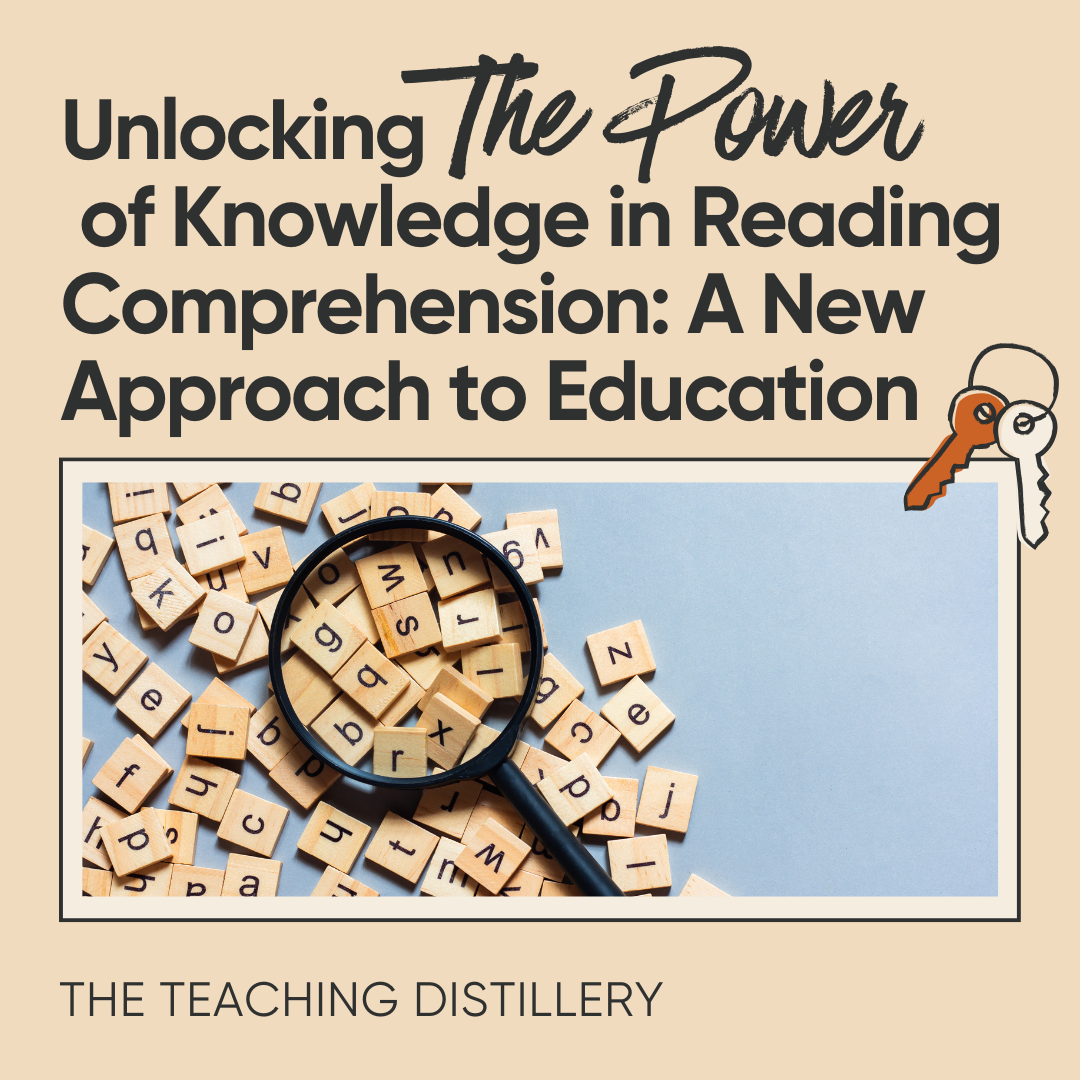Unlocking the Power of Knowledge in Reading Comprehension: A New Approach to Education
In recent years, there has been a fundamental shift in the way we approach reading comprehension in education. This change, rooted in research and practical experience, is transforming the landscape of teaching and learning. In this blog post, we'll explore the key insights from Natalie Wexler's book The Knowledge Gap: The Hidden Cause of America's Broken Education System – And How To Fix It to understand how a focus on knowledge is reshaping education.
The Knowledge Gap: Unraveling the Mystery
The persistent gap in test scores between students from different socioeconomic backgrounds has long perplexed educators and researchers. The answers to this puzzle lie in our approach to teaching reading comprehension. Traditional education has placed heavy emphasis on teaching skills like "finding the main idea" and "making inferences." However, this approach has not yielded significant improvements in reading scores. Despite countless hours devoted to these skills, reading scores have remained stagnant, with approximately two-thirds of students testing below proficiency (Wexler, 2019).
Skills vs. Knowledge: The Crux of the Issue
The heart of the problem lies in the misconception that teaching skills in isolation can unlock the doors to comprehension. Standardized reading tests, while appearing to assess comprehension skills, often evaluate a student's ability to apply knowledge and vocabulary. Students lacking essential background knowledge hit a roadblock when faced with advanced texts and vocabulary, particularly in higher grade levels. This knowledge gap contributes significantly to the achievement gap between students from diverse socioeconomic backgrounds. Some students, typically from more affluent families, acquire knowledge outside of school, while many others rely on schools for this vital knowledge. Unfortunately, schools often prioritize skill-focused instruction over knowledge-building efforts in an attempt to boost test scores (Wexler, 2019).
The Paradigm Shift: Knowledge-Centered Curriculum
The solution to this dilemma lies in a paradigm shift in education. It is imperative to recognize that reading comprehension is not solely dependent on skills but is heavily reliant on knowledge and vocabulary. This realization has led to the adoption of knowledge-building curricula in many schools. These innovative curricula prioritize content-rich topics, focusing on establishing a foundation of knowledge and vocabulary that supports comprehension. Instead of rapidly shifting between unrelated topics, students immerse themselves in specific subjects for several weeks, encountering sophisticated vocabulary repeatedly (Wexler, 2019).
Engaging Students with Complex Texts
In this new approach, even young students are exposed to complex texts related to the topic, read aloud by their teachers. This approach enables students to build academic knowledge and vocabulary before they can read independently. It represents a departure from the belief that students must read independently from the very start.
A Teacher's Transformation
The shift from skill-centered to knowledge-centered instruction isn't just about changing curricula; it's about transforming teachers' perspectives. Many educators have realized that something was missing from their reading instruction, even if they couldn't pinpoint it. They're now seeing the value of knowledge-based approaches and witnessing remarkable changes in their students.
Equity and Democracy in Education
At its core, this shift is about equity and democracy in education. Providing all students, regardless of their background, with both essential skills and knowledge from an early age is vital for creating a fairer and more knowledgeable society.
Embracing Scientific Research
This transformation also highlights the importance of incorporating scientific research on learning into education practices. Teachers, often deprived of this valuable knowledge, can greatly benefit from evidence-based insights (Wexler, 2019).
Conclusion: A Brighter Future
As we embark on this educational revolution, it's clear that the power of knowledge is the key to unlocking the potential of our students. By shifting our focus from mere skills to a broader, content-rich approach, we have the opportunity to bridge educational gaps and empower students to become critical thinkers and lifelong learners.
The insights shared in this blog post are based on Natalie Wexler's book The Knowledge Gap: The Hidden Cause of America's Broken Education System – And How To Fix It (2019). Let's embrace this shift, prioritizing knowledge, and watch as our students flourish in a world rich with comprehension.

